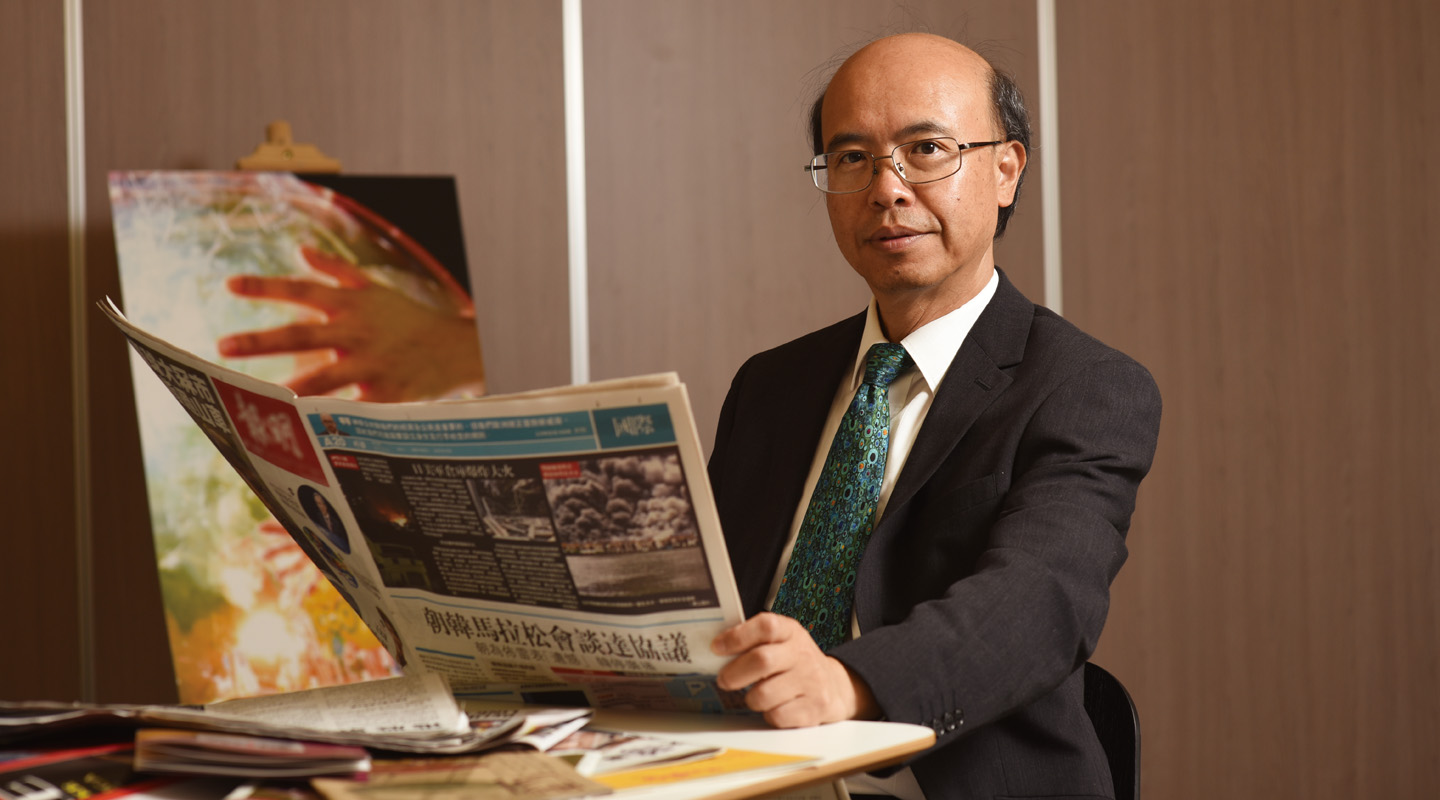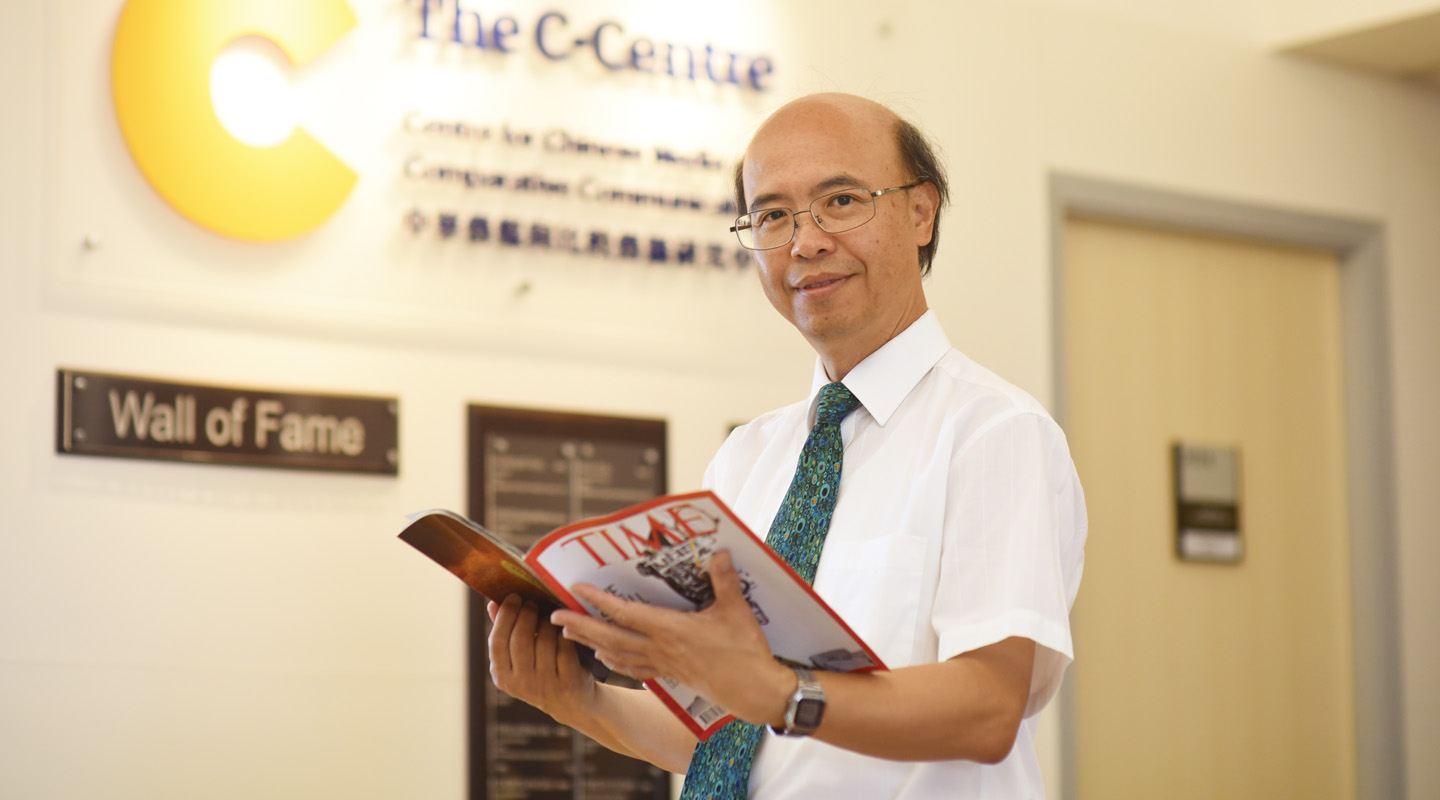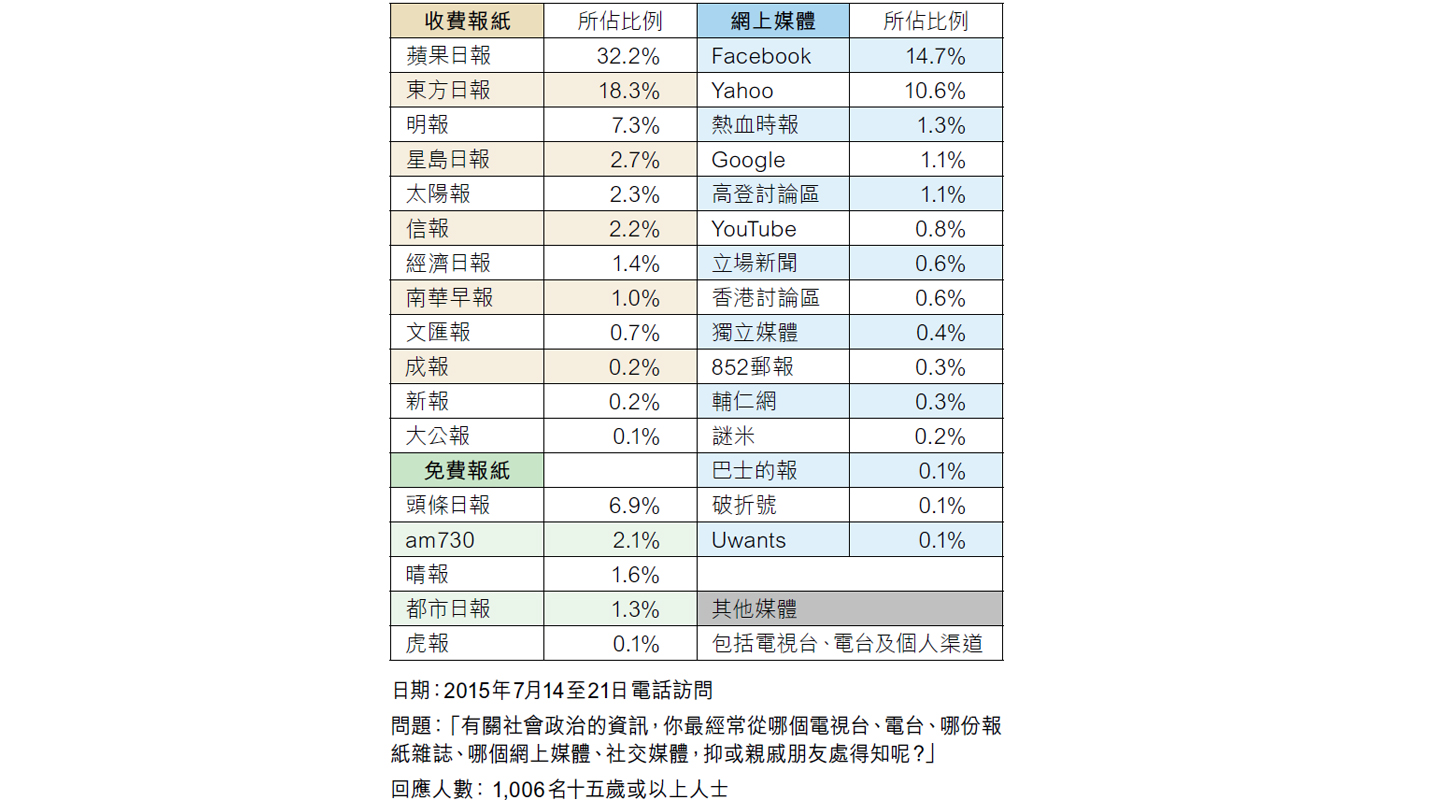Dear readers, With the launch of e-newsletter CUHK in Focus, CUHKUPDates has retired and this site will no longer be updated. To stay abreast of the University’s latest news, please go to https://focus.cuhk.edu.hk. Thank you.
Traditional Print Media: the spider or the fly?
In the battle of the old and the new media, the former appears to be winning.

A storm is brewing for Hong Kong's print media. Longstanding newspapers have closed shop, mainstream magazines are retrenching. The spectre of digitization looms large as new media and free newspapers pose challenges to conventional print media.
In a recently published article, Prof. Clement Y.K. So of the School of Journalism and Communication concludes that much as the rise of digital media has led to market fragmentation, statistics show that traditional print media are still the major players in the market (13 August 2015, Ming Pao). The CUHK Newsletter talked to Professor So on two findings in his research.
The Coming of Monopoly
As opposed to the 'Cain and Abel' scenario of the past, a single leader now dominates every media category. This does not imply a shrinking of the media market or a dwindling of choices and competition. Rather it points to the leader having a more obvious leadership position. Professor So explains that Hong Kong's highly-differentiated press market is crammed with 17 dailies, more than any other city in the world. It is understandable that advertisers select among the many news media outlets (and every outlet has its own platforms) in the hope of getting maximum reach.
In this age of information oversupply, no one spends a lot of time on one type of media or platform alone. The industry's equilibrium has come to rest on a near case of monopoly. The demise of individual print media due to outmoded operational models or other reasons has little impact on the overall picture. Hong Kong's newspaper market is still vibrant, offering readers no shortage of options.

Commentary the Forte of Digital Media
Contrary to popular belief, digital media pose very little threat to traditional news media. Professor So thinks this is because news reporting is still core to the industry, whereas the strength of purely digital media lies in commentary. Traditional news organizations enjoy an edge in terms of manpower, professionalism and credibility. Some of them have managed to develop, with some success, their own digital platforms, maximizing on cost-effectiveness, and even explored new ways of reporting (such as videos and other interactive modes). He believes that as long as they avoid duplicating content on their print and digital platforms, and ensure their information services are strategically aligned with the tastes of their target audiences, their performance and market share will grow.
Due to these reasons, most digital media are no match for traditional media in news reporting and investigative journalism. Ironically, the online media were born when bloggers uploaded their own current affairs commentaries. This has in fact taken the prominent feature of Hong Kong dailies—the supplement columns—to a new level. With rapidly developing information technology and an everchanging media ecology, digital media's ability to interact with a large audience in almost-real-time is quite ideal for a small and densely-populated city where culture is eclectic and mobile devices are ubiquitous. Commentary thrives on the mushrooming of social issues or even controversies—an essential condition for the thriving of digital media.
Digital news has been around for over a decade in the US and Europe. Michael Massing reviews the situation in the US in the decade since the birth of The Huffington Post in 2005, and his observation coincides with Professor So's: 'When it comes to impact, traditional news organizations retain an overwhelming edge.' (25 June, 2015, New York Review of Books)

This article was originally published in No. 462, Newsletter in Sep 2015.